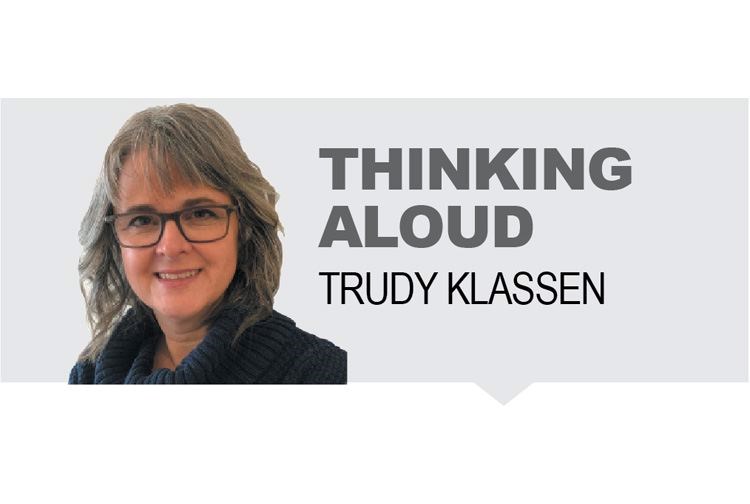On June 11, 2008, Canadian Prime Minister Stephen Harper issued this official apology:
"Two primary objectives of the residential school system were to remove and isolate children from the influence of their homes, families, traditions and cultures, and to assimilate them into the dominant culture. These objectives were based on the assumption Aboriginal cultures and spiritual beliefs were inferior and unequal. Indeed, some sought, as it was infamously said, 'to kill the Indian in the child.' Today, we recognize that this policy of assimilation was wrong, has caused great harm, and has no place in our country."
It was a moment of acknowledging the historic racist treatment at the hands of the state. Some may say the apology was useless because it couldn't undo the harm caused, or because we shouldn't judge history by today's standards. However, the lack of an apology would have continued to harm, so it was needed and overdue. When any government, or any organization, makes a mistake, even if done in good faith, there needs to be an acknowledgment and apology.
In many ways, for the non-Indigenous, the apology began the process of reconciling events in the past with reality today. Much has been thought, said, and felt, on how to correct historic wrongs. UNDRIP and the Truth and Reconciliation Calls to Action are efforts to begin that process. One proposal is making the news in Prince George.
Both UNDRIP and the TRCC2A have been used to justify the arbitrary renaming of Kelly Road Secondary School to Shas Ti Secondary School. People opposed to the renaming have frequently been called racist for wanting to keep the original name. Lets think about that.
UNDRIP is basically a framework to ensure Indigenous rights and culture are not wiped out by the state, and that they should not be hindered from practicing and restoring their cultural traditions. The Truth and Reconciliation Calls to Action, (which is not law, only recommendations based on their findings) are about undoing the harms done to Indigenous peoples that attended residential schools. The common factor in both documents is that they grant or recommend special treatment for a certain race - in this case, Indigenous people.
We can say that the special treatment is justified because race-based policies and laws were used to deny basic human rights. We can say that the experience of racism justifies this special legal treatment for those that endured systemic abuse. Those are legitimate arguments.
In making that argument, however, we have to acknowledge the elephant in the room. The elephant is that any law or recommendation that grants special treatment (even if meant to correct historic mistreatment) based on race, is race-based. Therefore, any discussion about how to implement UNDRIP will be a race-based, or racist, conversation. It has to be. We cannot speak about the rights belonging to Indigenous people under UNDRIP (or any other law or recommendation that specifies a specific race) without speaking about the special rights of people of a specific race. If we are okay with that, then there should be no accusations of "racist" simply because someone makes a race-based comment.
The request to rename Kelly Road is based on one specific race's history in the area. The school and community was built for every student in the community, regardless of race. The land the school was built on is part of the traditional territory of the Lheidli Tenneh, who are Indigenous. Therefore, we need to remember that a discussion about the potential renaming of Kelly Road will often include race.
The history of KRSS is mostly the story of the "white race." Like Canada's Indigenous peoples, the "white" race is diverse, and many of them were enemies in the old country - Germans, British, Italian, Ukrainian, Russian, Danish, Irish, Austrians, French, and others. Upon migrating to Canada, they came together, and put aside their differences, to build a new, multicultural country. Many of those who originally built the school for their children also have a story of their ancestors fleeing either religious, ethnic, or racist persecution. For them, those memories are not so very far away.
The elder alumni of Kelly Road see the school community as a triumph of their rebuilt new life, new friends, new neighbours, new community, their new story. They remember their sacrifices of family and community and fear another loss. I would venture to say, then, that the elders of the Lheildi Tenneh and Kelly Road alumni probably have more in common than either of them think.
Reconciling those diverse experiences is the role of everyone in our community, so that we can live in harmony. Even race-based laws like UNDRIP and the Truth and Reconciliation's Calls to Action, call on us to help preserve and enhance Indigenous culture, but do not call for the replacement of settler or colonial history.
We can do this, but it will require wisdom, generosity, humility and a focused concern on building the entire community. It will depend on building unity and inclusion without degrading the stories of the Lheildi Tenneh and the non-Indigenous people who have made the Hart their home.
The question is are the trustees of School District 57 up to managing that nuance?



